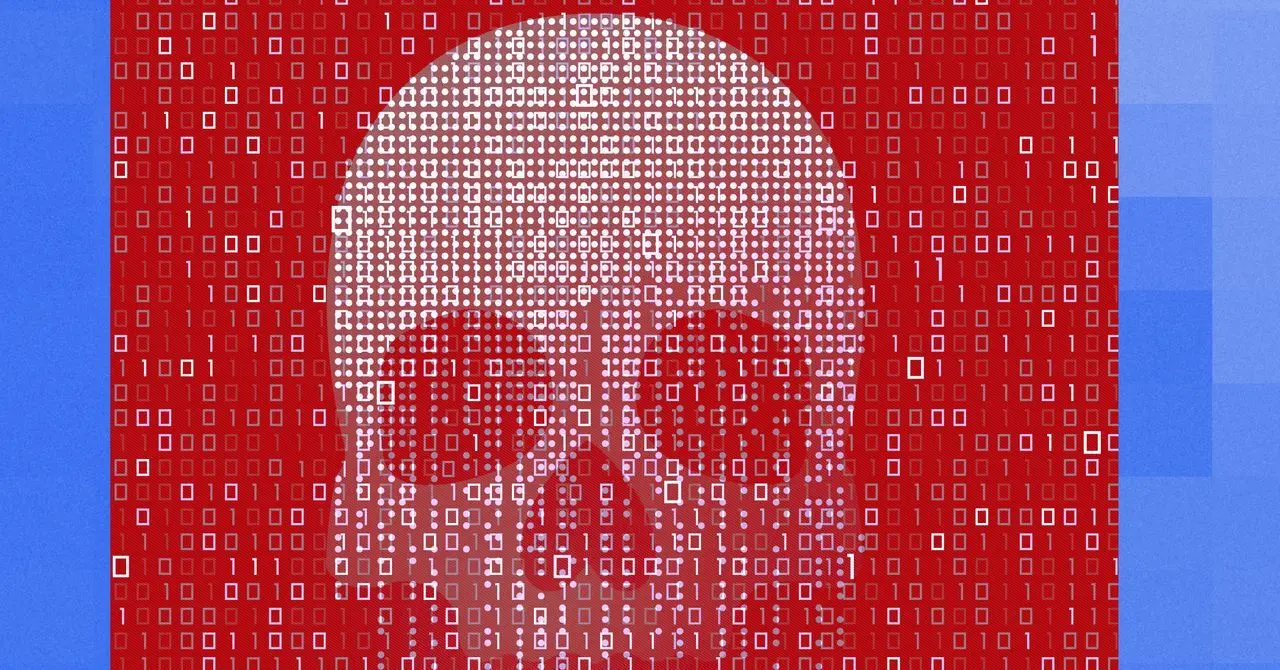OpenAI Co-Founder Karpathy: AI Agents a Decade Away from Viability
2 Sources
2 Sources
[1]
As workers fear for AI job cuts, Open AI co-founder says AI agents will take a decade before they even work: 'They don't have enough intelligence' | Fortune
For employees worried that AI agents could take their jobs, one of the field's leading founders says the technology is still far from perfect. Andrej Karpathy, co-founder of OpenAI said it's not the "year of agents" -- and while he uses AI agent tools like Claude and Codex, they're still way behind the work of humans. "They're cognitively lacking and it's just not working. It will take about a decade to work through all of those issues," Karpathy said, in an episode of the Dwarkesh Podcast. "They just don't work. They don't have enough intelligence, they're not multimodal enough, they can't do computer use and all this stuff," he added. "They don't have continual learning. You can't just tell them something and they'll remember it." There is no isolated definition for AI agents, but they're typically used as virtual assistants who autonomously perform workplace tasks with reasoning. Today, agents are used for tasks like customer service and IT support requests. While many workers become increasingly anxious about the security of their jobs amid AI disruption, Karpathy says the tools have not been perfected just yet to perform without a person there guiding it. "You should think of it almost like an employee or an intern that you would hire to work with you," he said. The tech guru further elaborated on his argument on X, saying workers should learn from AI, not be sidelined by it. "I want it to make fewer assumptions and ask/collaborate with me when not sure about something. I want to learn along the way and become better as a programmer, not just get served mountains of code that I'm told works." Today, AI agents are being implemented for customer service, IT and administrative tasks, but many tech companies are actually scaling back their automation plans. In fact, 50% of organizations who expected to significantly reduce their customer service workforce by 2027, are now abandoning these plans, according to Gartner, Inc. And 95% of firms who have implemented AI pilots have flopped. Still, that hasn't stopped AI companies from trying to work with these setbacks. For example, McKinsey built an AI agent using Microsoft's Copilot Studio software that can monitor an email address for incoming project proposals from potential clients. While a human must check what the agent produces, it has cut the time required to review projects from 20 days to two. On the flip side, in India, a company called "LimeChat" is still insisting on cutting customer-service jobs, saying it will use generative AI agents to enable clients to slash by 80% the number of workers needed to handle 10,000 monthly queries. While the long-term impact of AI agents on the workforce is still unfolding, experts expect they could significantly disrupt administrative tasks.
[2]
Karpathy: AI agents are a decade away from viability
Andrej Karpathy says current AI agents lack memory, multimodality, and autonomy -- arguing true functional systems are at least a decade away. OpenAI cofounder Andrej Karpathy stated on the Dwarkesh Podcast that functional AI agents are a decade away from viability. He outlined significant developmental issues, expressing a critical view of their current capabilities and the industry's direction regarding their implementation. During his appearance last week, Karpathy, who is now developing an AI native school at Eureka Labs, detailed his assessment of existing agent technology. "They just don't work," he said, citing a list of fundamental problems. He explained that agents currently "don't have enough intelligence, they're not multimodal enough, they can't do computer use and all this stuff." He further elaborated on their cognitive shortcomings, noting, "They don't have continual learning. You can't just tell them something and they'll remember it. They're cognitively lacking, and it's just not working." Karpathy projected that resolving these multifaceted issues would be a lengthy process, adding, "It will take about a decade to work through all of those issues." This perspective contrasts with significant industry enthusiasm for agents, which are defined as virtual assistants capable of completing tasks autonomously. These systems are designed to break down complex problems, formulate plans, and execute actions without continuous user prompts. The interest in this technology has led many investors to label 2025 as "the year of the agent," anticipating major advancements in the field of autonomous virtual assistants and highlighting a divergence between market expectations and Karpathy's technical evaluation. Following the podcast, Karpathy posted on the social media platform X to provide additional clarity. In his post, he reiterated his frustrations with the current trajectory of development and tooling. "My critique of the industry is more in overshooting the tooling w.r.t. present capability," he wrote. He described a prevailing industry vision that he finds problematic, a future where "fully autonomous entities collaborate in parallel to write all the code and humans are useless." His comments addressed the gap between the conceptual goal of autonomous agents and the practical limitations of current AI models. Karpathy articulated that he does not want to pursue such a future. He instead advocates for a different model of human-AI interaction. In his preferred scenario, AI would not operate as a fully autonomous entity that supplants human involvement. Instead, he envisions a collaborative framework where humans and AI systems work together to perform tasks, including coding and execution. This model emphasizes a partnership that combines the strengths of both to achieve results rather than one focused on complete automation.
Share
Share
Copy Link
Andrej Karpathy, co-founder of OpenAI, argues that AI agents are far from replacing human workers, citing significant technological limitations. He projects a decade-long timeline for addressing these issues, challenging industry enthusiasm for rapid AI agent adoption.

OpenAI Co-Founder Challenges AI Agent Hype
Andrej Karpathy, co-founder of OpenAI and current developer at Eureka Labs, has sparked debate in the AI community with his recent statements about the limitations of AI agents. In an episode of the Dwarkesh Podcast, Karpathy expressed skepticism about the current capabilities of AI agents, contradicting the widespread industry enthusiasm
1
.Current Limitations of AI Agents
Karpathy outlined several fundamental issues with existing AI agent technology:
- Lack of intelligence
- Insufficient multimodality
- Inability to use computers effectively
- Absence of continual learning
"They just don't work. They don't have enough intelligence, they're not multimodal enough, they can't do computer use and all this stuff," Karpathy stated
2
. He emphasized that these cognitive shortcomings make AI agents currently unviable for many real-world applications.Timeline for Viability
Contrary to industry expectations labeling 2025 as "the year of the agent," Karpathy projects a much longer timeline for addressing these issues. "It will take about a decade to work through all of those issues," he said, suggesting that functional AI agents are still far from replacing human workers
1
.Impact on Workforce and Industry
While many workers fear AI-driven job cuts, Karpathy's statements offer a different perspective. He suggests that AI tools should be viewed as assistants rather than replacements: "You should think of it almost like an employee or an intern that you would hire to work with you"
1
.This view aligns with recent trends in the tech industry. According to Gartner, Inc., 50% of organizations that expected to significantly reduce their customer service workforce by 2027 are now abandoning these plans. Moreover, 95% of firms implementing AI pilots have encountered failures
1
.Related Stories
Vision for Human-AI Collaboration
Karpathy advocates for a collaborative model of human-AI interaction rather than full automation. He envisions a future where AI complements human skills instead of replacing them entirely. "I want it to make fewer assumptions and ask/collaborate with me when not sure about something. I want to learn along the way and become better as a programmer, not just get served mountains of code that I'm told works," Karpathy explained
2
.Industry Implications
Karpathy's statements challenge the prevailing industry narrative about rapid AI agent adoption. His critique targets what he sees as an overreach in tooling relative to current AI capabilities. This perspective offers a counterpoint to the vision of "fully autonomous entities collaborate in parallel to write all the code and humans are useless"
2
.References
Summarized by
Navi
[2]
Related Stories
The Rise of AI Agents: Capabilities, Challenges, and Future Implications
28 Jul 2025•Technology

The Rise of AI Super-Agents: Promises and Challenges in the Next Era of Artificial Intelligence
16 Jan 2025•Technology

AI agents surge in capability but lack safety disclosures, MIT AI Agent Index reveals
20 Feb 2026•Science and Research

Recent Highlights
1
Samsung unveils Galaxy S26 lineup with Privacy Display tech and expanded AI capabilities
Technology

2
Anthropic refuses Pentagon's ultimatum over AI use in mass surveillance and autonomous weapons
Policy and Regulation

3
AI models deploy nuclear weapons in 95% of war games, raising alarm over military use
Science and Research





